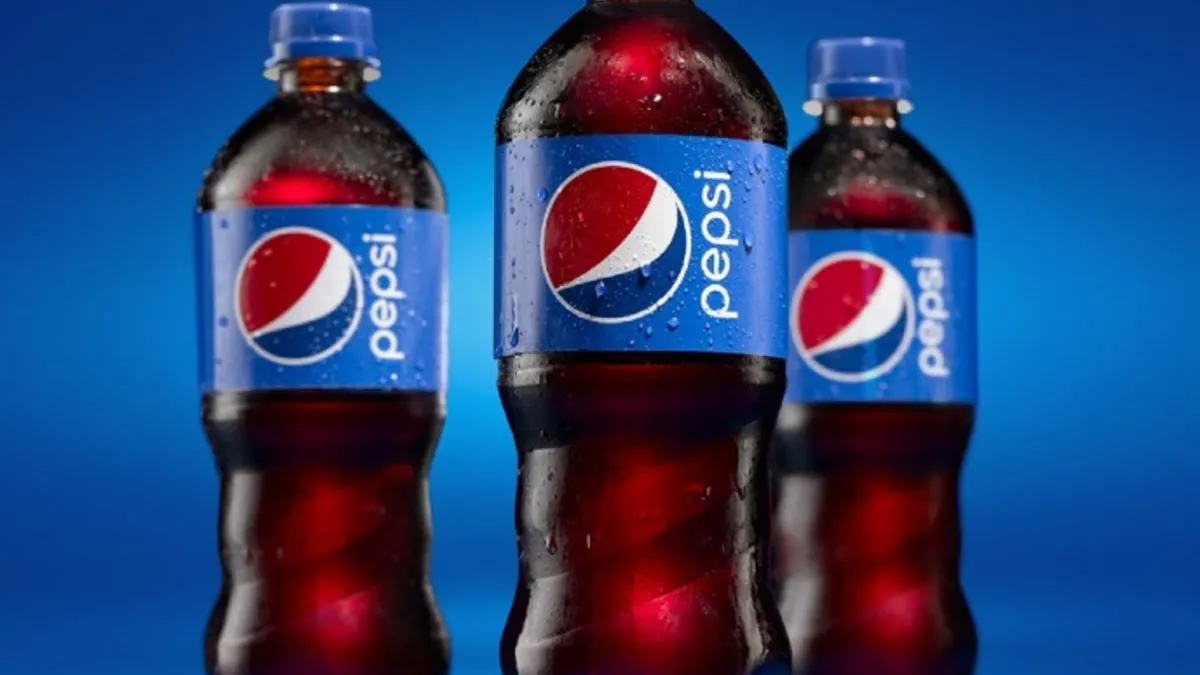UPDATE, April 17, 2019: PepsiCo has scrapped plans to launch an orbital billboard with StartRocket, per The Drum. In a statement to The Drum, a PepsiCo spokesperson explained that the marketer had conducted an "exploratory test" with StartRocket, but that the pilot was "a one-time event." PepsiCo has no further plans to test the orbital billboard technology, the spokesperson said.
Dive Brief:
- PepsiCo is the first brand client of StartRocket, a Russian company that's readying a constellation-like "orbital billboard" advertising format in the sky, according to a report in Futurism.
- A spokesperson of PepsiCo's Russian arm confirmed to Futurism that the project is real and will be used to promote a non-alcoholic energy drink called Adrenaline Rush. The campaign's messaging intends to challenge "unjustified prejudices against gamers," per the report.
- The effect of StartRocket's orbital billboard will be created by sending clusters of CubeSats, a type of miniature satellite, into the atmosphere that project a brand's message through Mylar sails that reflect sunlight. StartRocket says it's successfully tested the technology via a helium balloon that was sent into the stratosphere equipped with one of the reflectors. The firm aims to deploy its full orbital tech system in 2021 and will charge brands $20,000 for eight hours of advertising time, per Futurism.
Dive Insight:
PepsiCo heading into the stratosphere with StartRocket would make for an eye-grabbing use of aerial advertising that could help the company drum up interest for its Adrenaline Rush brand and the new campaign around dispelling gamer stereotypes. As Futurism noted, however, the deployment also carries fairly significant risk of backlash, as the concept draws to mind the intrusiveness and ubiquity of ads that dominate the landscapes in dystopian works of fiction like "Blade Runner."
Similar concerns have been echoed recently around other traditionally static advertising channels, like out-of-home (OOH), that are trying to integrate more digital and forward-thinking elements to attract consumer attention. New York City last month filed suit against Ballyhoo Media, a company that operates a barge around the East and Hudson rivers carrying brightly lit digital billboards, The Wall Street Journal reported. The complaint argues that zoning regulations forbid ads to run in most of the city's waterways, and Mayor Bill de Blasio called the barges an "eyesore" for the community.
But the potential launch of PepsiCo's orbital billboard, still several years out, matches up with the marketer's other recent efforts to breathe fresh life into its outdoor advertising. Last year, it ran a two-part campaign in the Netherlands that played off of taste-test marketing targeting rival Coca-Cola. The effort had consumers take the typical blind taste test between the two soft drink brands and then be retargeted by programmatic digital OOH ads in shopping malls near supermarkets where they could purchase Pepsi products.
The collaboration with StartRocket also extends PepsiCo's ongoing attempts to win over gamers, a market that's breaking out its niche with the rise in popularity of events like esports and livestreaming. Most of PepsiCo's previous gamer-centric efforts have been built around brands like Mountain Dew and Doritos, which have introduced products around gaming as a hobby, including the energy drink Mtn Dew Amp Game Fuel that hit shelves late last year.













